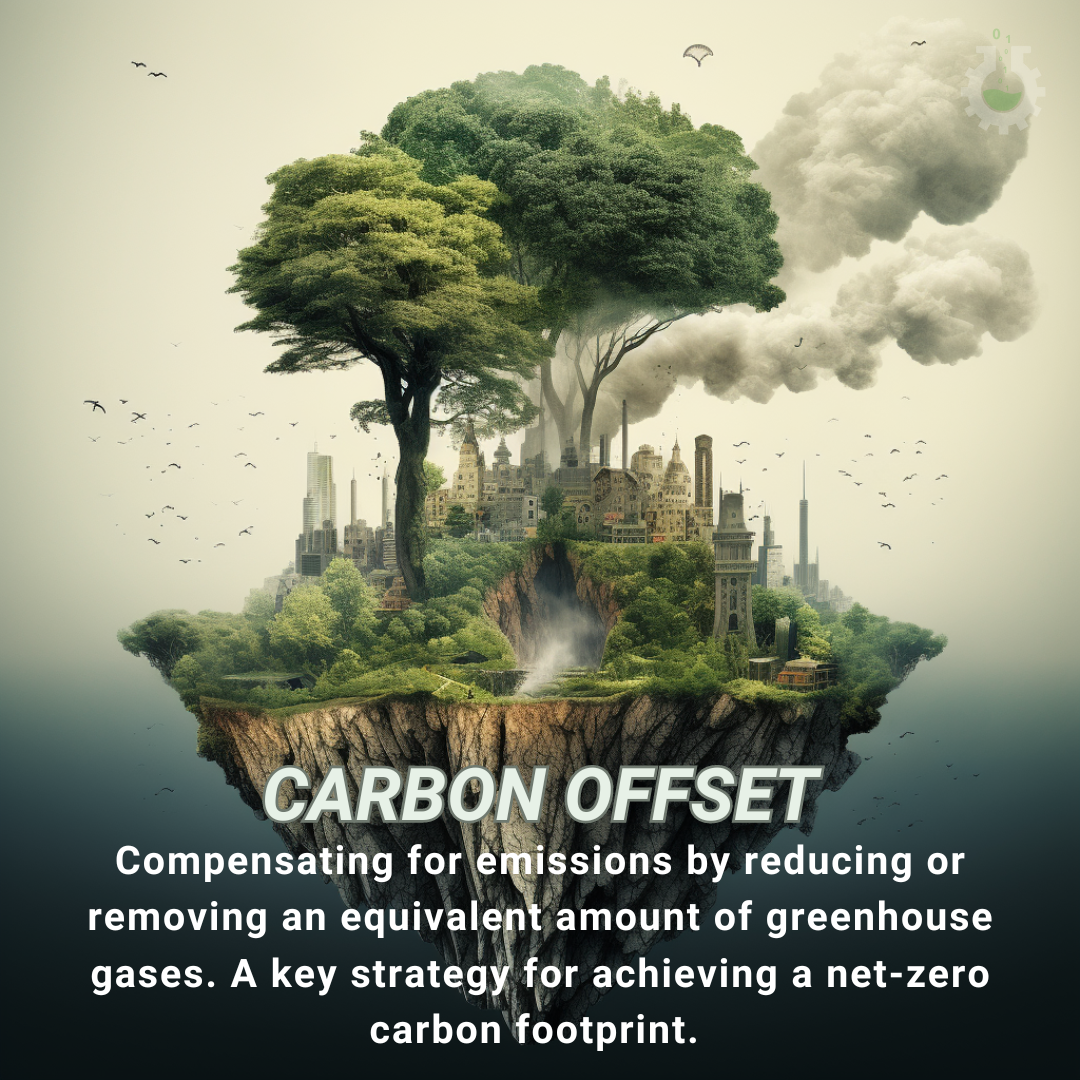November 29, 2023
Climate Change Poster Collection of the Day – Carbon Offset
Book a Demo
Today’s Climate Change Poster Collection highlights Carbon offset, refers to the reduction of greenhouse gas emissions or an increase in carbon storage to compensate for emissions that occur elsewhere. It’s a method of balancing the amount of carbon dioxide produced by an organization or individual with an equivalent amount reduced or removed from the atmosphere.
On the other hand, a carbon offset credit is a certified reduction of one metric ton of CO2 equivalent amount of other greenhouse gases (GHGs). These credits serve to transfer net climate benefits from one entity to another. This means that the overall impact on the climate remains the same whether an organization ceases emission-causing activities or enables equivalent emission-reducing activities elsewhere globally.
When we talk about addressing climate change, it’s not just about CO2. The challenge involves reducing emissions of all greenhouse gases, which include methane, nitrous oxide, hydrofluorocarbons, perfluorocarbons, nitrogen trifluoride, and sulfur hexafluoride. Each of these gases contributes to the warming of our planet, and each needs to be addressed.
The concept of carbon offsetting is feasible because climate change is a global issue. Reducing greenhouse gases anywhere contributes to overall climate protection. However, it’s important to note that local pollutants may also be produced from GHG emissions causing activities.
Carbon offsetting typically involves purchasing credits to reduce an organization or an individual’s carbon footprint. The revenues from these purchases are often channeled into eco-friendly projects that aim to reduce greenhouse gas emissions.
To effectively offset carbon emissions, organizations must first calculate and measure emissions. Then, they need to reduce emissions where they can and offset remaining emissions through certified reduction projects.
While carbon offsetting can contribute to combatting climate change, it’s not a comprehensive solution. It doesn’t necessarily encourage polluters to cease GHG production. The focus should be on a holistic approach that includes reducing, eliminating, and reversing GHG emissions.
While the above information is focused on organizations, it’s important to know that as individuals, we often have the option to opt-out of the sale or sharing of our personal information from a website and its affiliates. This choice can be reversed by clicking the “Customize my ad experience” link. This ensures that our online behavior doesn’t inadvertently contribute to carbon emissions.
In conclusion, while carbon offsetting is a significant tool in the fight against climate change, it should be used in conjunction with other efforts to reduce and eliminate greenhouse gas emissions.
Discover an inspiring collection of climate change poster.



